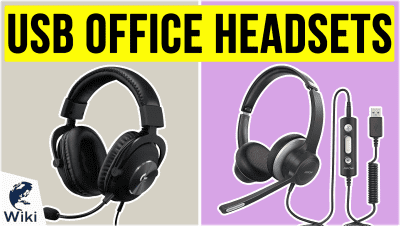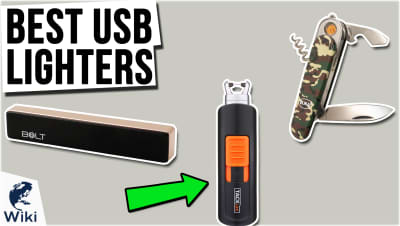The Best No-Tracking Search Engines
The most popular search engines on the Internet are also the least private. Companies like Google, Bing, and Yahoo track your search history and save your data. If you're tired of targeted advertising and the danger of information breaches, you should switch to a search engine that doesn't track you. This video was made with Ezvid Wikimaker.
The Top 5 No-Tracking Search Engines
- DuckDuckGo Take back your privacy.
- Privatelee The best of Google & Bing.
- Startpage The world's most private search engine.
- Yippy The educator's choice for search.
- Lukol Your search, your privacy.
Features Available on No-Tracking Search Engines
| Proxy Server | Browser Integration | Search by Category | |
|---|---|---|---|
| DuckDuckGo | |||
| Privatelee | |||
| Startpage | |||
| Yippy | |||
| Lukol |
What Google Knows About You
Google tracks its users information for several reasons. For one thing, the company wants to make their services more efficient. Knowing your search history can help bring more relevant results to the top of future searches. This can be helpful and convenient, but it's not all Google does with your data. They also use it to advertise more effectively. This means that advertisers can target their campaigns at people based on their demographic, political affiliation, or even personality type.
The History of Online Privacy
Other Ways to Maintain Your Privacy
- Turn off location sharing
- Use a VPN Service
- Clear your cookies regularly
- Manage your privacy settings on social media sites
Conclusion
As companies like Google get more and more powerful, it can seem, at times, like privacy is becoming a thing of the past. But that doesn't have to be true. If you take a few simple precautions, you can keep your information secure. One of the easiest things you can do is switch to a search engine that doesn't spy on you. So you can take advantage of all the resources the Internet has to offer, without trading away your privacy to do it.
In Depth
It's no secret that the most popular search engines, such as Google and Bing, track your browsing activity. They save your search history, frequented websites, cookies, IP address, location, and sometimes even your personal information, such as your name and gender. While this is done to keep your search results and the advertisements you see relevant to your interests, this also comes with a lot of security and privacy concerns.
One of the common ways of staying anonymous while browsing online is using a private or no-tracking search engine. There are a lot of these available on the internet, and each of them has their own unique functions and style. Using these search engines will ensure that you always get unbiased results, and you can feel at ease knowing that your behavior will not be tracked. With that said, let's go through some of the best private search engines currently available online. Take note that this is done in no particular order.
Coming in at #1 is DuckDuckGo. Regarded as one of, if not the most, popular private search engines out there, DuckDuckGo vows to never collect or share your personal information regardless of whether or not your browser is in private browsing mode. Their service provides a lot of convenient features such as auto-loading results, auto-suggest, and support for search syntax. There is also an option to boost search results for a selected region, making it easier to find websites that make use of a certain country's domain.
There is also an option to boost search results for a selected region, making it easier to find websites that make use of a certain country's domain.
After searching for a keyword or phrase, you may also filter out results to show images, videos, and relevant news. DuckDuckGo also lets you change the site's language. There is an on-going effort by contributors to translate the website's user interface, meaning that not all languages have been covered yet.
At #2, we have Privatelee. This search engine sports a very minimalist aesthetic and has infinite scrolling capability. Every result will have a "Web of Trust" rating which shows how trustworthy and safe a website is. This feature can be turned off via the settings menu on the top right corner. You can also make use of "PowerSearch" shortcuts to quickly find what you're looking for in the supported websites. Compared to others, Privatelee doesn't have much, but it does get the best, unbiased results from Google, Bing, and Ask.
Next up at #3 is Startpage. They claim to be the world's most private search engine, and they offer a proxy service that renders you "invisible". What this means is that whenever you access a website, they will see Startpage's IP address instead of yours. All you have to do is click on the "proxy" button instead of directly clicking on an external link. There are a few downsides to this such as slower loading times, but it's a small price to pay for extra security.
There are a few downsides to this such as slower loading times, but it's a small price to pay for extra security.
Startpage has a settings menu with a few things that can be toggled on and off, depending on your needs. From here, you may also change the language of both the user interface and search results. One of the main things that set this search engine apart from the others is the advanced search feature that can be accessed through the main page. This allows for very thorough searching that even allows you to filter by domain name and date.
Coming in at #4 is Yippy. This one has a unique way of handling searches. Unlike the others, Yippy provides a list of relevant tags that lets you filter search results into more specific topics.
For example, typing the word "fiction" will show you general results for it, but you can narrow this down by choosing one of the tags. In this case, you can choose among topics such as sci-fi, romance, crime, and many others. Aside from that, there's also the option to filter by date, website, and news sources. You can also preview pages before entering them, though this feature may not always work.
You can also preview pages before entering them, though this feature may not always work.
Last, at #5, is Lukol. It uses "Google custom search" to provide a personalized experience, but it does so behind its own proxy server in order to keep your personal information safe. You may use this service to search the web or look for images, videos, and news. Lukol has no other additional features, but it makes up for it by basically being a private version of Google.
There are many other alternatives on the internet, but these are some of the best and highly recommended ones. Most of these offer browser integration for Chrome and Firefox, which allows you to set them as your browsers default search engine. DuckDuckGo and Startpage are also available on mobile for both iOS and Android. Whichever you use will depend on your personal preference, so try them all out to see which one fits your needs the most.















